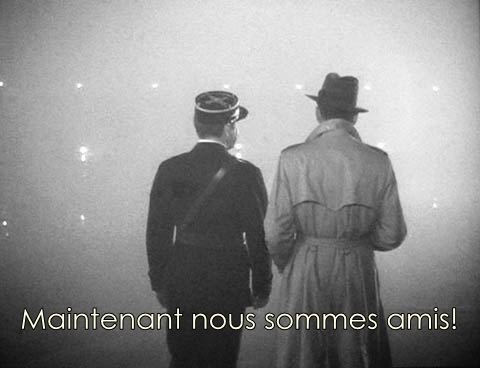Some nice people retweeted my post about being a humble prescriptivist, and I had some interesting reactions in the comments and on Twitter, but Peter Sokolowski had one that I wasn’t prepared for.
@ArrantPedantry @grvsmth Those are the descriptivist straw men that everybody's been looking for. When you find one, call me.
— Peter Sokolowski (@PeterSokolowski) August 27, 2013
Jonathon Owen held up Robert Hall’s Leave Your Language Alone as an example of the kind of pure descriptivist that I was referring to, and Sokolowski tweeted:
@grvsmth @ArrantPedantry The implication is that a "descriptivist" doesn't acknowledge or respect standards of good English. That's absurd.
— Peter Sokolowski (@PeterSokolowski) August 27, 2013
After thinking it over, I’ve come to the conclusion that there really are two ideas of “descriptivism.” When writing my post I was thinking of the Robert Hall kind, which is the kind that most linguists talk about and aspire to – although I would agree with Sokolowski that we only wind up as hypocrites, loudly declaiming prescriptivism as we prescribe left and right. I think Sokolowski was thinking of a different kind of prescriptivism, as described by Jesse Sheidlower in an article that Sokolowski tweeted last year:
Descriptivism involves the objective description of the way a language works as observed in actual examples of the language. Descriptive advice — almost an oxymoron — about the acceptability of a word or construction is based solely on usage. If a word or expression is not found in careful or formal speech or writing, good descriptive practice requires the reporting of this information.
This kind of “descriptive advice” (I saw how you ducked “prescription” there, Sheidlower) is a venerable tradition with a long history in second language instruction. Most second language learners aspire to speak and write like native speakers, so it makes sense for their teachers to study the speech and writing of native speakers. As Battye, Hintze and Rowlett tell us, it was applied to instructing native speakers on “good usage” by Claude Favre de Vaugelas in 1647:
These are not just laws I made for our language based on some personal prerogative of mine. That would be reckless, some would say insane, because what authority, what basis do I have for claiming a privilege that is the sole right of Usage – the power that everyone recognizes as the Lord and Master of modern languages?
Vaugelas’ point – the reason people bought his book – was not to base these laws on all usage, but on “good usage,” le bon Vsage, which he explicitly defined as the usage of the members of King Louis XIV’s court. His book contained “descriptive advice” for people who were already literate in French – and thus presumably upwardly mobile – and wanted to write like courtiers so that they would fit in better, and maybe even be admired, at court. Write like these people and you’ll get ahead.
Somewhere along the line Vaugelas’ bon Vsage became Sokolowski’s “standards of good English.” The goal is still to write like these people and get ahead – Sokolowski tweeted, “I bet [Hall’s] kids speak good English.” I bet, but I doubt they needed any descriptive advice to do it. They spoke good English because they were raised as members of the elite. Sokolowski’s job as an editor at Merriam-Webster is to describe the writing of the elites and make prescriptions (aka descriptive advice) that upwardly mobile people can follow when they want to fit in.
The main difference between France in 1647 and the United States in 2013 is that there’s no explicit reference to a court. There are still elites, and people are still striving to fit in with them, but the old court all went to the guillotine, so nobody wants to name the new court. Instead they just handwave in the direction of “standards.”
If we’re using this definition of “descriptivist” – someone who describes the way elites talk and sells that descriptive advice to strivers – then my descriptivist chemist is not accurate. I think that’s a perfectly valid definition of “descriptivist” and I’m not judging (even if I am teasing a little) – I may be looking for a job doing that at some point.
I think it is important for linguists to be clear when we are actually attempting to describe language objectively as scientists, when we are advising descriptively, when we are humbly prescribing language with a political goal in mind, and when we’re being the kind of crotchety traditionalists that Vaugelas thought were insane back in 1647.




